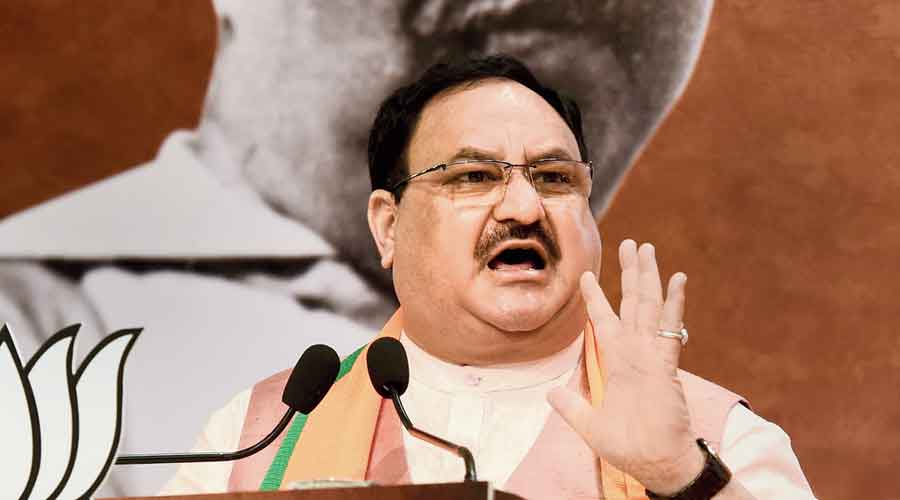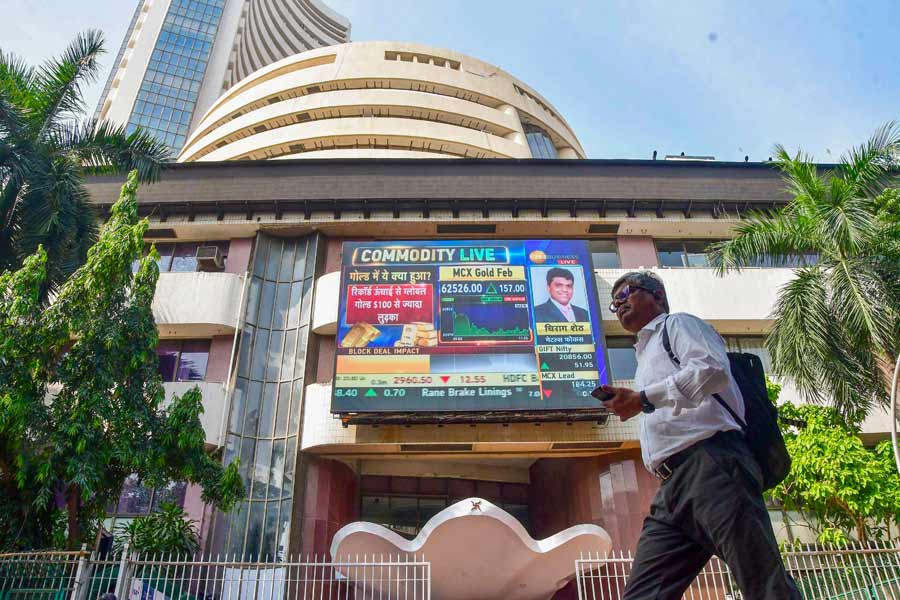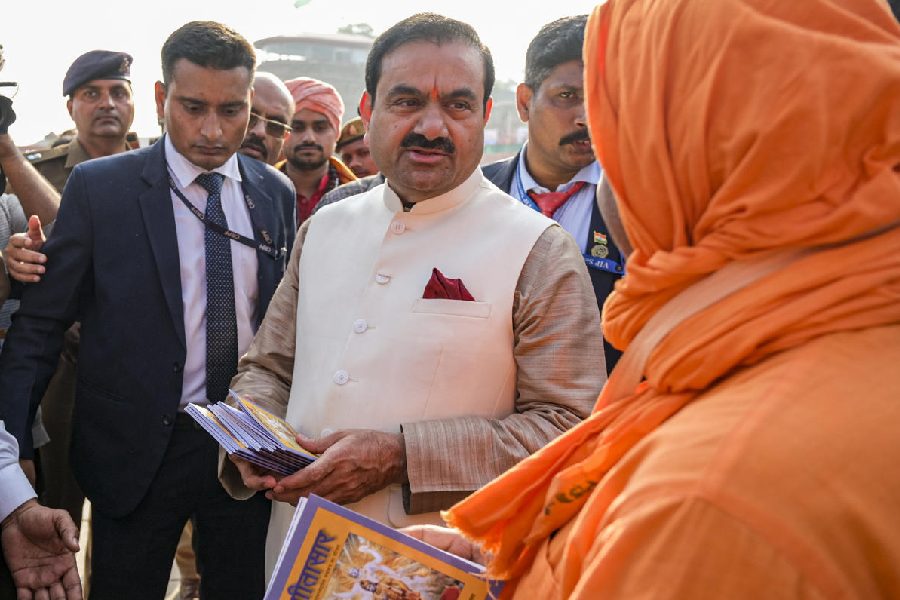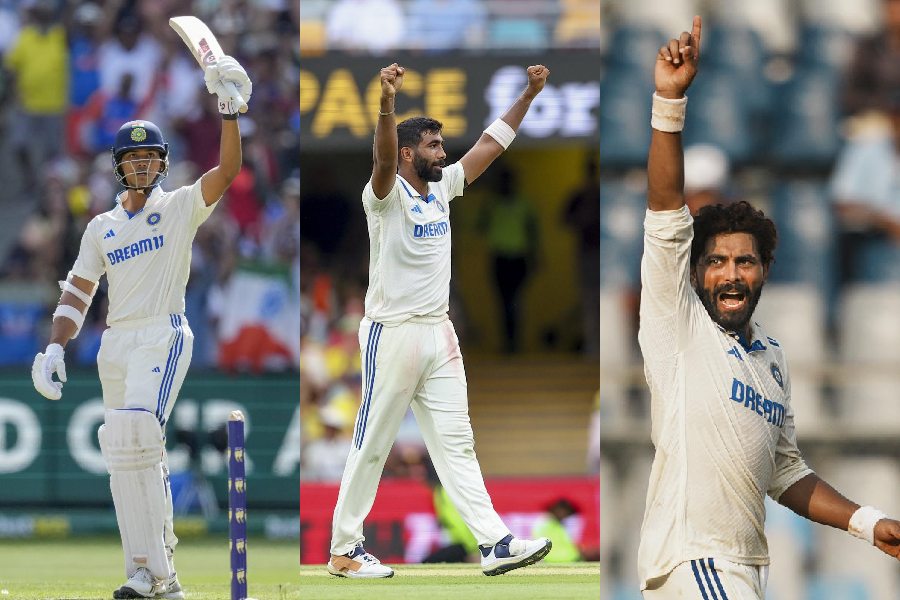Some senior historians have raised questions on the BJP’s attempts to pitch Bhartiya Jana Sangh founder Syama Prasad Mookerjee as the “Paschimbongeyr srishtikorta (the creator of West Bengal)” and “Bangalir rokkhakorta (the protector of Bengalis)” in the run up to the Assembly polls in which the saffron camp is desperate to wrest the seat of power in the state.
Given the current political climate in the state — in which even chief minister Mamata Banerjee chooses to be seen as honouring Mookerjee — and the country, the historians requested anonymity.
“The Bharatiya Jana Sangh (BJP’s predecessor) founder was a lot of things — some, rather admirable — but he was essentially a divisive exponent of raw Hindutva that did considerable damage to the nation towards the end of the British Raj,” said a Calcutta-based historian.
“The likes of Mookerjee, on the Hindu side, contributed significantly — just as the likes of Muhammad Ali Jinnah did on the Muslim side — to the Partition,” he added.
The BJP celebrated Mookerjee’s 119th birth anniversary on Monday with programmes across the country.
BJP national president J.P Nadda addressed a virtual rally for Bengal from Delhi on the occasion and referred to his life and works.
Sources in the BJP state unit said the saffron camp would go big with Mookerjee in the run-up to the make-or-break Assembly polls.
“If today Bengal is a part of India, it is because of Syama Prasad Mookerjee. Not only that, the fact that a large portion of United Punjab is today with India is also because of the voice raised by him,” said Nadda.
But another historian pointed out that Mookerjee opposed the United Bengal plan — a proposal to transform undivided Bengal into an unpartitioned, sovereign state called the Free State of Bengal, without division on religious grounds — floated by Bengal premier Huseyn Shaheed Suhrawardy that received the backing of the likes of Sarat Chandra Bose and Kiran Shankar Roy.
“Mahatma Gandhi was not opposed to it. Muhammad Ali Jinnah was open to the idea. Then Bengal governor Frederick Burrows supported it too. But opposition from the likes of Mookerjee went a long way in that falling through and Bengal being partitioned,” he said.
“If his facilitation of Partition is considered, then Mookerjee was, indeed, one of the creators of West Bengal…. Also, we can’t forget that both Jawaharlal Nehru and Subhas Chandra Bose had reservations about his politics,” he added.
A political scientist said he understood why the BJP thought Mookerjee could be a good platform for its Bengal campaign.
“An upper caste, elite, bhadralok statesman, Mookerjee ticks most of the right boxes for being deemed a great Bengali icon…. But the saffron camp’s attempt is with the objective of using his legacy in the current socio-political climate to ensure deeper penetration in the state ahead of 2021,” he said.
He said the BJP was keen to use Mookerjee’s legacy in Bengal, where a majority of people still view it as a non-Bengali party that stands for the “Hindi, Hindu, Hindustan” vision.
“At the same time, his unvarnished majoritarian views help the BJP’s communal, divisive agenda,” he said.
“But even in Bengal, Mookerjee has always been a controversial figure,” he added, referring to protests in Calcutta in January against the Narendra Modi government’s decision to rename the Calcutta Port after him. The protesters said the port should instead be named after Bengal Renaissance patriarch Raja Rammohun Roy.
A city-based historian, who was part of the protests, said several researchers considered Mookerjee as biased towards the British.
“Mookerjee, as a minister of Bengal Province (1941-43) under (A.K.) Fazlul Haq’s coalition government, had helped suppress the Quit India movement here, out of his weakness for the Union Jack,” he said.
He pointed out how during the “back-breaking” Bengal Famine of 1943-44, a principal concern of Mookerjee was that government-run canteens employed Muslim and Hindu “lower caste” cooks.
“Mookerjee and his Hindu Mahasabha were preoccupied with how those cooks made it “impossible” for upper caste Hindus to eat without “breaking caste”. This, amid a disaster that killed over 30 lakh Bengalis,” he added.
CAA ‘tribute’
BJP national president Nadda, who addressed the virtual rally for the party’s Bengal unit on the birth anniversary of Syama Prasad Mookerjee, credited him for the abrogation of Article 370 and the Citizenship Amendment Act.
The stress on the two contentious issues made it apparent that the saffron camp would go to the Bengal Assembly polls with its divisive narrative.
“It is of great pleasure that the leadership of Narendra Modi and the strategies of Amit Shah helped us get rid of Article 370, that one issue over which Syama Prasad Mookerjee sacrificed his life,” Nadda said in his speech from the BJP headquarters in New Delhi.
“He fought for the rights of minorities from Bangladesh and Pakistan…We will have to implement the CAA in Bengal as a tribute to the vision of Syama Prasad,” Nadda added.
Insiders in the BJP’s Bengal unit have indicated that given the state’s demography with around 30 per cent Muslim voters, the party’s chances of wresting power from the ruling Trinamul depend on the ability of the leaders to spin a narrative that will polarise the electorate. Most BJP leaders think the repeated mention of the role of the Modi-Shah duo in ensuring the abrogation of Article 370 of the Constitution and enactment of the CAA would create the necessary polarisation.
Shah, who had launched the series of virtual rallies for Bengal on June 9, had focused on the CAA and attacked Mamata Banerjee for opposing the new citizenship matrix.
Nadda’s narrative on Monday started off from where Shah had left it. Nadda aligned the two contentious legislations with Mookerjee whom the party wants to pitch as a Bengali icon.
“In 1953 Mukherjee told a press conference, ‘if 4 crore Muslims can live peacefully in a nation of 35 crore, why can’t 25 lakh Muslims live peacefully in Kashmir?’” Nadda said, explaining Mookerjee’s opposition to Article 370.
Speaking about Mookerjee’s contributions to the nation, Nadda asserted it was because of the efforts of the Jana Sangh founder that West Bengal and large parts of Punjab are with India.
“It is due to Syama Prasad Mookerjee that Bengal and Punjab are with India. Otherwise, they would have gone to Pakistan during the Partition...”
Nadda also blamed the country’s first Prime Minister Jawaharlal Nehru for apparently denying an inquiry into Mookerjee’s death under mysterious circumstances in Srinagar jail in 1953.
In the later half of his speech, Nadda accused the Mamata regime of degradation from the ethics and morals that Mookerjee had preached in his lifetime.
He also accused Mamata of not conforming to the rules of cooperative federalism, alleging that the state had not shared exact details of the Covid-19 situation in Bengal with the Centre.
“They are willing to compromise on all fronts just to stay in power,” Nadda said referring to the Trinamul leadership. “We have to follow the path led by Syama Prasad Mookerjee and restore the pride of Bengal by removing the current government,” he added.
Trinamul leader and state parliamentary affairs minister Partha Chatterjee termed Nadda’s allegations baseless. “For the BJP what matters most is votes. They can go to any extent, from telling lies to distorting history. They want to destroy our culture and tradition. They want to thrust their culture and ideology on Bengalis and are trying to mislead the people of Bengal,” he said.











